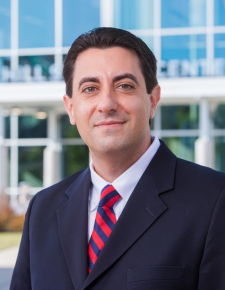Because mentorship has a critical influence on trainees’ decision to pursue research as a career and on their success during research training, we use an individual-centered mentoring strategy for each resident.
The STEPP program aims to place research track residents with a seasoned researcher who will serve as their primary mentor through PGY2–4. The primary mentor will work with the research track resident to identify a suitable research project and will oversee all project activities. In collaboration with the resident, STEPP leadership and the primary mentor will identify additional mentors as needed, using a network-based approach to support specific research interests and career development.
Psychiatry is a broad discipline, and psychiatry-related research spans fields from neuroscience to public health. At UAB, research track residents are encouraged to seek mentorship across departments and divisions, not only within the Department of Psychiatry and Behavioral Neurobiology, but also in our collaborating departments. Potential mentors can be found in:
Featured Research Faculty Profiles

Karen Cropsey, Psy.D.
Dept. of Psychiatry & Behavioral Neurobiology
Her research interests include developing treatment interventions for patients with substance use disorders, with a particular focus on smoking cessation and opioid treatment interventions in disadvantaged populations.

Yogesh Dwivedi, Ph.D.
Dept. of Psychiatry & Behavioral Neurobiology
The major thrust of his research is to elucidate the neurobiological mechanisms associated with depression, early-life stress, and suicidal behavior by integrating basic and clinical neuroscience. More specifically, his research involves the regulation of gene expression through epigenetic and epitranscriptomic mechanisms and their roles in these disorders and whether they can be translated into biomarkers for diagnosis and treatment response.

Aaron Fobian, Ph.D.
Dept. of Psychiatry & Behavioral Neurobiology
Aaron Fobian is an Associate Professor in the Department of Psychiatry and Behavioral Neurobiology. Her research interests are in pediatric behavioral health, specifically to assess the effects of an adolescent sleep and media use intervention on metabolism and body composition. Her research also assesses functional neurological disorders (FND, conversion disorder), and she developed an intervention for FND called Retraining and Control Therapy (ReACT).

Karen Gamble, Ph.D.
Dept. of Psychiatry & Behavioral Neurobiology
The overall goal of her research program is to investigate environmental modulation of circadian clock function in mammalian systems and the contribution of clock disruption to pathological states. A second, related interest of the laboratory is the translation of what we have learned about circadian regulation in animal models to humans, specifically by determining the impact of circadian dysfunction in the early stages of disease.

Adrienne Lahti, MD
Dept. of Psychiatry & Behavioral Neurobiology
She directs a neuroimaging laboratory focused on studying severe mental illness. She uses a variety of brain imaging techniques, including Positron Emission Tomography, functional MRI, MR Spectroscopy, and diffusion tensor imaging to evaluate the pathophysiology of schizophrenia and the effects of various psychotropic drugs on brain function and biochemistry.

Junghee Lee, Ph.D.
Dept. of Psychiatry & Behavioral Neurobiology
Her research program aims to understand cross-diagnostic mechanisms of social dysfunction in severe mental illness. Using a cutting-edge technology and innovative neuroimaging tools, her laboratory at UAB examines complex relationships between brain and social behavior in severe mental illness by focusing on how those relationships evolve over the course of illness and the way in which they are linked to pathophysiological processes.

Li Li, M.D., Ph.D.
Dept. of Psychiatry & Behavioral Neurobiology
Her research focuses on the interface between obesity, pre-diabetes, depression, and opioid use disorders. She aims to better understand etiologies of these comorbid conditions and to develop effective treatments.

Matthew Macaluso, D.O.
Dept. of Psychiatry & Behavioral Neurobiology
His research is focused on clinical pharmacology and its translation to clinical practice in mood disorders. He has experience in all phases of human testing, which are essential steps before new agents can be used in patients. His research group is dedicated to determining the safety and optimal dosing of significant new medications and to relieve the burden of mental illness on patients and families.

S. Justin Thomas, Ph.D.
Dept. of Psychiatry & Behavioral Neurobiology
His research is focused on disparities in sleep, circadian rhythms, and a variety of health outcomes, including hypertension, pain, and substance use/ abuse.